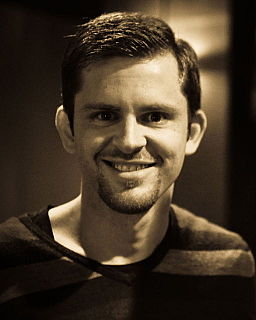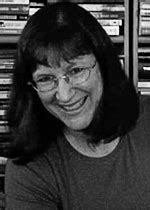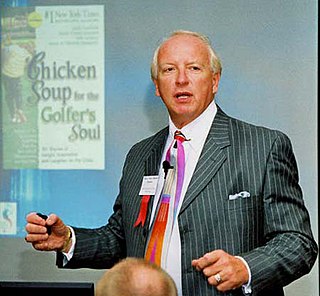Цитата Фредерика Ленца
Мы пытаемся реализовать себя, даже если наш внутренний голос говорит нам стать всем, что мы есть, — мы все равно бежим от этого.
Связанные цитаты
В нас есть инстинкт новизны, обновления, высвобождения творческой силы. Мы стремимся пробудить в себе силу, которая действительно меняет нашу жизнь изнутри. И все же тот же инстинкт подсказывает нам, что эта перемена есть восстановление самого глубокого, самого изначального, самого личного в нас самих. Родиться свыше — значит стать не кем-то другим, а самим собой.
Каждому из нас нужно время и пространство для воспоминаний, медитации и спокойствия... Слава Богу, что это так! На самом деле эта потребность говорит нам, что мы созданы не только для работы, но и для того, чтобы думать, размышлять или даже просто следовать своим умом и сердцем за сказкой, за историей, в которую можно погрузиться, в определенном смысле потерять себя, чтобы впоследствии обогатиться.
Многие из нас живут из-за страха перед тем, что о нас подумают другие люди. Мы ждем, пока кто-нибудь даст нам разрешение, в котором будет сказано, что быть собой — это нормально. Не пытайтесь быть бесстрашным и не притворяйтесь, что на вас не действует страх. Просто постарайтесь не дать страху принимать решения за вас.
Мы боимся обнаружить, что мы больше, чем мы думаем. Больше, чем думают наши родители/дети/учителя. Мы боимся, что на самом деле обладаем талантом, о котором говорит нам наш тихий, тихий голос. Что у нас действительно есть мужество, настойчивость, способности. Мы боимся, что действительно сможем управлять нашим кораблем, водрузить наш флаг и достичь нашей Земли Обетованной. Мы боимся этого, потому что, если это правда, то мы отдаляемся от всего, что знаем. Проходим через мембрану. Мы становимся чудовищами и чудовищами.
Но я хотел бы сказать, что духовная жизнь — это жизнь, в которой вы постепенно учитесь слушать голос, который говорит что-то другое, который говорит: «Ты — возлюбленный, и на тебе покоится моя милость»... хочу, чтобы вы услышали этот голос. Это не очень громкий голос, потому что это интимный голос. Оно исходит из очень глубокого места. Он мягкий и нежный. Я хочу, чтобы вы постепенно услышали этот голос. Мы оба должны слышать этот голос и утверждать для себя, что этот голос говорит правду, нашу правду. Оно говорит нам, кто мы.
Поэзия связывает нас с тем, что сокровеннее всего внутри нас самих. Это дает нам доступ к нашим собственным чувствам, которые часто бывают туманными, и вовлекает нас в искусство обретения смысла. Он расширяет пространство нашей внутренней жизни. Это волшебное, таинственное, необъяснимое (хотя и не непостижимое) событие в языке.
Самоуважение часто принимают за высокомерие, хотя на самом деле все наоборот. Когда мы сможем беспристрастно признать все наши хорошие качества, а также наши недостатки, мы сможем начать ценить себя, как дорогого друга, и испытать комфортное внутреннее свечение уважения. Чтобы пройти путь к раскрытию своего полного потенциала, нам нужно стать самим себе любящим учителем и тренером. Побуждая себя стать лучше, мы развиваем истинное уважение к себе, и наша жизнь станет священной.
После каждой неудачи попросите прощения, возьмите себя в руки и попробуйте еще раз. Очень часто Бог сначала помогает нам в достижении не самой добродетели, а именно этой способности всегда пытаться снова. Ибо каким бы важным ни было целомудрие (или мужество, или правдивость, или любая другая добродетель), этот процесс воспитывает в нас душевные привычки, которые еще важнее. Она исцеляет наши иллюзии о самих себе и учит нас полагаться на Бога. Мы узнаем, с одной стороны, что мы не можем доверять себе даже в лучшие моменты, а с другой, что нам не нужно отчаиваться даже в худшие моменты, потому что наши неудачи прощаются.
Мы думаем, что, защищая себя от страданий, мы добры к себе. Правда в том, что мы становимся только более напуганными, более ожесточенными и более отчужденными. Мы чувствуем себя отделенными от целого. Эта обособленность становится для нас тюрьмой — тюрьмой, ограничивающей нас нашими личными надеждами и страхами, заботой только о самых близких нам людях. Как ни странно, если мы в первую очередь пытаемся оградить себя от дискомфорта, мы страдаем. Тем не менее, когда мы не закрываемся, когда мы позволяем нашим сердцам разбиться, мы обнаруживаем наше родство со всеми существами.



































